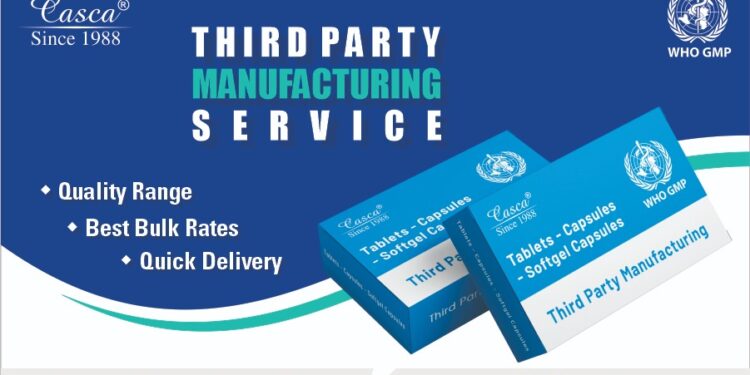THIRD-PARTY PHARMA MANUFACTURING is a business related term associated with outsourcing of pharmaceuticals or to get your pharma products manufactured from other manufacturing firms with your own brand name or logo. These units handle specific stages of drug developments and manufacturing processes. If you are not able to take responsibilities and bear changes of all costs included in different manufacturing stages you should opt for Third-Party Pharma contract Manufacturing. They will take care of all manufacturing responsibilities such as designing, composition, labeling and delivery of products. This Third party pharma manufacturing is also known as Contract manufacturing or Contract development and manufacturing.
Key Elements and Considerations Included in Contract Manufacturing

Involvement of Parties: Before associating in Third party contract manufacturing always identify and define parties, including the client and the CMO/CDMO.
Scope: Take detail of all products and products to be manufactured, also get insight about manufacturing processes, including formulation, packaging, labeling and quality control steps.
Quality Standards and Adherence Status: Always check quality standards of third party contract manufacturing company. It should be measured and in accordance with GMP regulations also check other regulatory compliance including FDA, WHO and ISO 9001:2015
Product Specifications: One should never ignore product specifications such as quality standards, testing methods and acceptance criteria, while getting in agreement with Third-Party Manufacturing.
Pricing and Payment Conditions: Always get insight about the price structure of products, including price units, payment schedules and any additional costs such as raw material or changing any order.
Intellectual Property Rights: Get all information about intellectual property rights with ownership of any proprietary, formulations, processes or any technology developments during the manufacturing process.
Schedule of Manufacturing: Get sure about the Production timeline, including starting dates, milestones and timetable for deliveries, also provisions for addressing delays and their consequences.
Quality Assurance and Testing: Check Quality control and testing procedures with responsibilities for testing and release of batches.
Challenges in Third Party Pharma Contract Manufacturing
Providing THIRD-PARTY MANUFACTURING SERVICES is not an easy task there are an uncountable number of challenges associated with this business model, these challenges are listed below:
Quality Control and Assurance: Maintaining the quality of pharma manufactured products and its regulatory standards is not an easy work. It’s really very important to maintain consistent quality and standards according to regulations.
Supply Chain Management: Supply chain also plays an important role in not disrupting the delivery schedules. Maintaining it can ensure timely delivery of raw materials, efficient production and distribution of finished products. Delays or disruptions can impact product availability and patient health.
Communication and Collaboration: It is necessary to maintain better communication and collaboration between pharmaceutical companies and Third Party Contract Manufacturing firms. Miscommunication can cause misunderstandings, delays and also cause issues related to quality of products.
Capacity and Scalability: Always get sure about the capacity and flexibility of Third party manufacturers to fulfill production and fluctuations such increased needs for order or regulatory changes.
Technology and Equipment: Nowadays, technology is growing at a rapid pace staying updated with modern technology and equipment will be proved as essential to produce high-quality pharmaceuticals. Third party manufacturers for providing better services should invest in these technologies and equipment.
Information Security and Confidentiality: Securing data related formulations of drugs and manufacturing process is necessary otherwise this could become problematic for the company. Measures should be taken for maintaining secrecy of drug formulations and other sensitive data.
Risk Management: Always identify and minimize the risks especially those related to quality, supply chain disruptions and regulatory changes.
CONCLUSION
To sum up, Third-party pharma manufacturing provides numerous benefits to pharmaceutical companies. However, one must be aware of the challenges associated such as managing risk, data security and confidentiality, technology and equipment, supply chain management, quality and assurance, etc. These challenges should taken care for smooth pharmaceuticals manufacturing process












